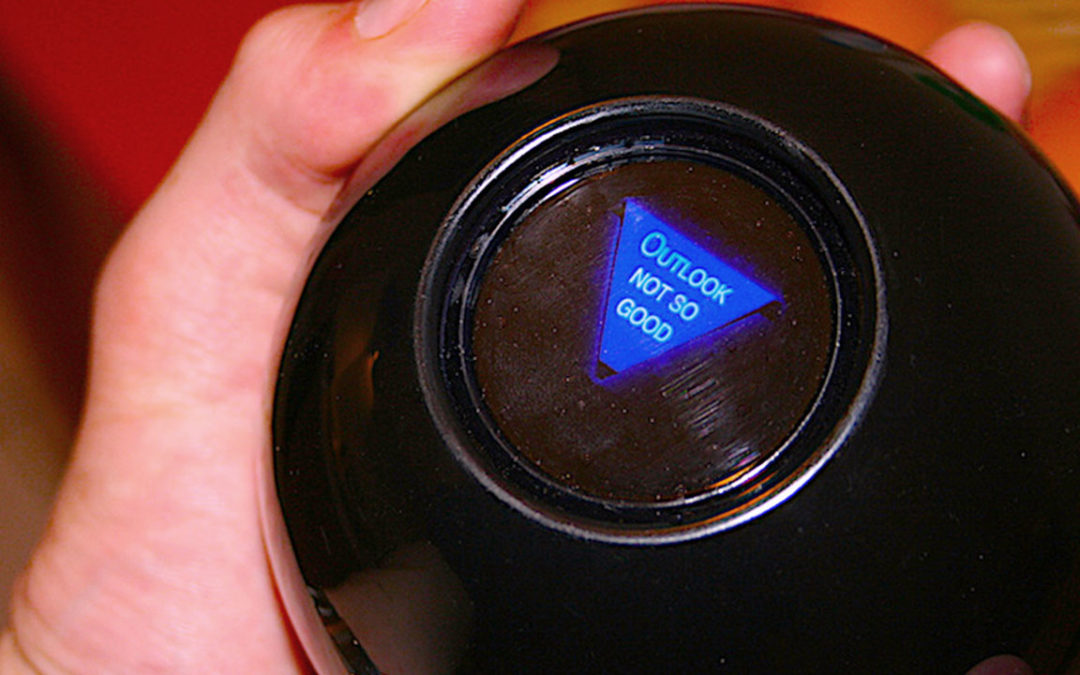Sometimes my subconscious rises out of its darkness to address questions I would prefer to avoid as I try to weave my past into the history I prefer to believe.
I generally succeed in avoiding these intrusions by being more focused on some other project.
My subconscious tends to work like the “Magic 8 Ball” of my childhood. When confronted with a question and tipped upright, its answer will float up to its little glass window.
Almost 20 years ago, if I had asked it: “Will I be divorced in four years?” its answer could have been: “As I see it, yes” and I would have laughed at the absurdity of that answer and asked another question like: “But don’t I love my family?” And its answer could have been “Yes definitely.”
Almost 20 years ago, I wrote a sonnet a week for a year in my effort to master the sonnet form. For 52 consecutive weeks, I paid little attention to anything other than my desire to get the rhyme scheme right (abab/cdcd/efef/gg) in 14 lines of roughly iambic pentameter.
My mind was driving the school bus.
My subconscious went to the playground.
A few years ago, after I finally committed to being a professional writer, I went back to look at the sonnets and thought of them as individual weekly efforts. But then last year I reread all 52 from beginning to end at one sitting and discovered something very different.
The 50th sonnet, the third to the last one, stopped me in my tracks. It was a memory about how my first wife and I fell in love as we walked to work. It is a beautiful love poem but ends with odd and troubling lines:
…How could this love go wrong?
Our lives are drawn to a collective center.
The buildings are the highest when we enter.
When I wrote those lines, we had been married for over 20 years, but four years later our marriage would end — to a large extent because we had been drawn apart by our ever-increasing professional workloads.
We lost the very real love we had when we first married and for years after.
Why?
“The buildings are the highest when we enter.”
It answered the question: “How could this love go wrong?”
It was all in there, but I had been working on some other project instead of us.
I second-guessed my conclusion, but I immediately started from the beginning and reread all 52 chronologically again.
All of a sudden #50 was not just a single love poem that recognized the hidden demise of love and marriage. All of the sonnets had loosely related overlapping themes, but they were also independent observations all from the same universe.
They were little standalone vignettes. Little stories floating to the surface, from skinny-dipping advice to scuba diving with sharks to giving up smoking.
This was the subconscious playing in the playground.
What intrigued me most about this discovery was that while the objective mind had been obsessed about form and order and had been locked into that project, I was quite unknowingly having a different conversation that I was denying, with my unruly and more interesting subconscious.
“An Accidental Diary” is a very different kind of book because it is a story told in 52 perfect independent little chapters that are less than one page long. A reader is free to connect the dots or to read each sonnet separately as a world unto itself.
And hey! What a deal!
You get your money’s worth when you buy it. It is both the Magic 8 Ball and the questioner as two different books all rolled up into one.
You can buy it for Kindle or get the paperback within five days. Any purchase permits you to provide a review on Amazon if you are so inclined.
https://www.amazon.com/Accidental-Diary-sonnet-week-year/dp/B09NGXSVM5/
Will you enjoy this book? “It is certain.”

